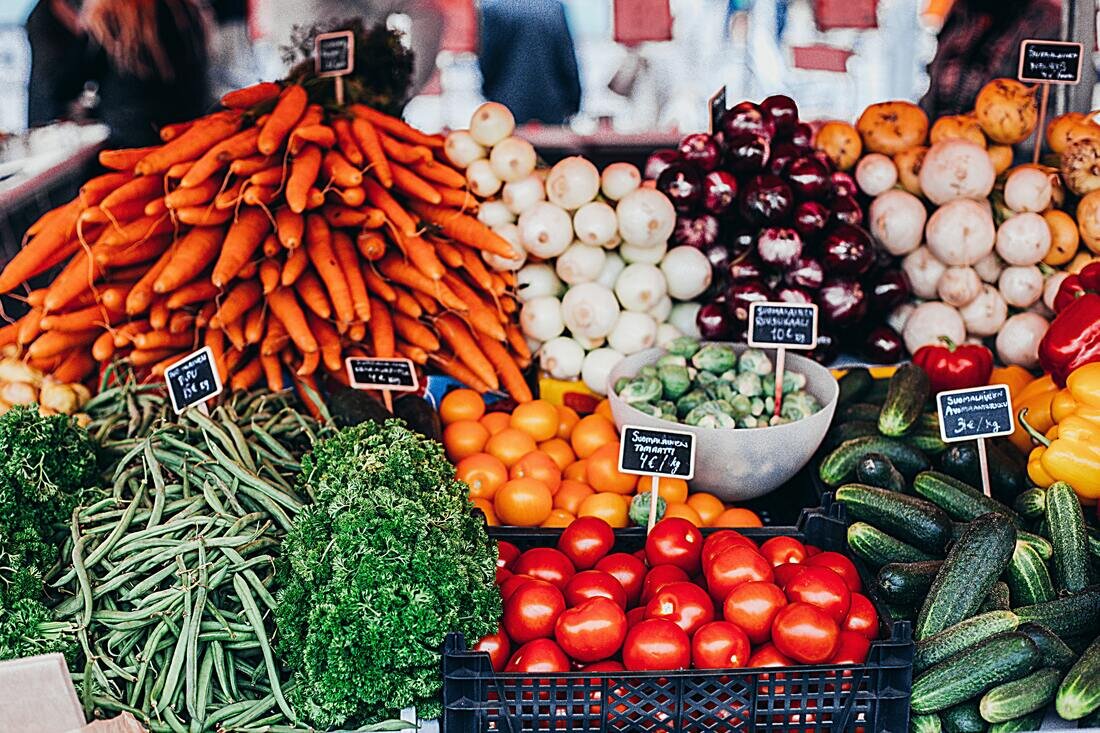
One of the many questions that I get about a vegan lifestyle is about the price. "Isn't it expensive to eat plant-based"? This is an important topic to look at and discuss, and I'll aim to clear up any confusion.
We have to establish a difference between the kind of vegan diet that exists. Is there a focus on vegan replacements for existing animal-based products - ice-creams, burgers, yogurts etc? Or do we want to be focusing on a whole-food, minimally processed vegan diet that consists of fruits, vegetables, nuts, seeds, legumes and unrefined grains?
Vegan replacements
If it is the former, then there is an argument to be had for veganism to be more expensive.
The concept of supply and demand comes into play here. Suppliers of products such as vegan ice-creams, vegan burgers and vegan chicken understand that the demand of these products in relation to the market is low, in comparison with their animal-based counterparts.
Although a rapidly growing movement, numbers of vegans are still very low worldwide. An exploration into diets around the world conducted by Ipsos in 2018 showed that just 3% of the world population is actually vegan (1), and although the number is rising, the plant-based community is still very much in the minority.
With that being said, brands that sell vegan replacement products are aware of this, and raise the price in line with their market share. So you can expect to pay that little bit more for your vegan Magnum ice-cream over the dairy offering.
As the demand for vegan replacement products goes up in line with the increase in the vegan population, you can expect the prices to come down. But at this present moment, vegan alternative foods do carry a higher price point.

Whole-food, plant based
The true monetary value lies in a whole-food, plant-based diet - and best of all, it is a far more optimal diet for health. The price point of fruits and vegetables is low and cost-effective, giving you an easy way to save money while nourishing your body.
Broccoli cloves will set you back 60p and are packed with nutrients; leafy greens such as kale and spinach aren't any more than £1.20 for a large bag. Eating a variety of whole foods in the form of fruits and vegetables is the way to go.
Pantry staples such as grains, legumes and beans are also extremely cost effective. Lentils, chickpeas, varieties of beans come in canned and packaged forms, and are easily accessible for under £2. Rice, whole-wheat pasta and sweet potatoes are cheap, readily available foods, and contain an abundance of nutrients to best satiate you. An example of a great resource for plant-based recipes at an affordable cost is Chef Toni Okamoto's 'Plant-Based On A Budget' (2) which will provide you with numerous nutritious recipes that won't break the bank.

What about organic foods?
Organic foods - foods grown without synthetic pesticides - do have a slightly higher price point. A conventional bag of kale would set you back around £1.20, but its organic counterpart would be 50p or so more. A small price to pay but worth it; this will be outlined in a future blog post.
What can we conclude from this then? That a vegan diet can both be expensive and inexpensive, depending on what route you go down. If you lay the foundations of your vegan diet with mock meats, ice-creams, vegan chicken, vegan cheese and the like, your grocery bill will be high.
In comparison, if you focus on an abundance of whole plant foods, in the form of fruits and vegetables, unrefined grains, nuts, seeds and legumes, you will dramatically cut down the price of your weekly shopping. More importantly though, focusing your eating on such foods will fuel your body with essential vitamins and minerals to ensure that you are successfully satisfied, feeling full, and maximising your chances of longevity and optimal health.
References:
(1) An exploration of diets around the world - Ipsos
